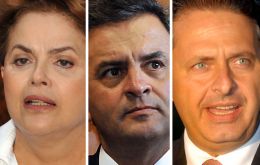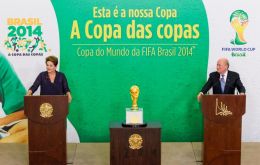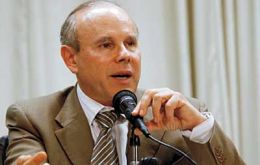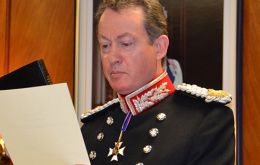MercoPress. South Atlantic News Agency
Stories for June 5th 2014
-
Thursday, June 5th 2014 - 07:20 UTC
High inflation and unemployment challenging Brazilian economy in election year

With the World Cup just eight days away, high inflation and unemployment is once again challenging Brazil’s economy, with the impact sure to influence this year’s election campaigns. Investors warned earlier this week that spending promises will undermine the fiscal discipline needed to restore confidence in the country and boost economic growth.
-
Thursday, June 5th 2014 - 07:15 UTC
Dilma claims FIFA had pledged that stadiums would be built with private funds

As Brazil rushes to finish stadiums and deal with a wave of protests ahead of the June 12 kick-off, president Dilma Rousseff partly blamed FIFA for the spiraling World Cup bill but said the money spent would leave a positive legacy.
-
Thursday, June 5th 2014 - 06:59 UTC
Sao Paulo metro workers declare an indefinite strike stranding 4.5m commuters

Sao Paulo metro workers voted Wednesday evening an indefinite strike beginning Thursday following the collapse of salary negotiations.
-
Thursday, June 5th 2014 - 06:54 UTC
Brazil scales back levies on foreign loans to help prop the national currency

The government of Brazil is cutting the tax obligations faced by business receiving foreign loans, opening the door to more financing opportunities, while helping address the problem of the falling value of the national currency, Real.
-
Thursday, June 5th 2014 - 00:04 UTC
Falklands developing strongly and with a high international community profile

Falkland Islands are enjoying the benefits of a healthy well managed economy, with excellent present and future prospects in its main industries, but also face challenges such as the need for manpower, closely linked to immigration, planning for a balance between environment and oil industry, a modern government and the continued attempts by Argentina to stifle the Islands economy and block economic development.
